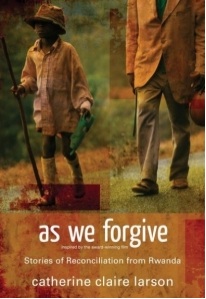 A CNN.com article reports about gaccaca proceedings in Rwanda, and a book I read recently provides ample stories and illustrations of the same. After a tough history of tension with occasional bursts of violence and bloodshed, in April 1994 Rwanda broke open and for 100 days radical Hutus slaughtered Tutsis and even moderate Hutus. Somewhere between 800,000 and a million humans beings died — and in the most gruesome of ways.
A CNN.com article reports about gaccaca proceedings in Rwanda, and a book I read recently provides ample stories and illustrations of the same. After a tough history of tension with occasional bursts of violence and bloodshed, in April 1994 Rwanda broke open and for 100 days radical Hutus slaughtered Tutsis and even moderate Hutus. Somewhere between 800,000 and a million humans beings died — and in the most gruesome of ways.
Did anyone see the PBS special or the documentary? Anyone have something to say about Rwanda?
When the smoke settled, Rwanda’s challenge was to put that country together again. Catherine Claire Larson’s book, As We Forgive: Stories of Reconciliation from Rwanda
, is must reading by pastors, by seminary students, and by anyone who wants to know the possibilities and power of forgiveness and reconciliation. We need more preaching and teaching about forgiveness — here is a good collection of stories. We need more Christians willing to forgive — here is a good collection of stories to see how it works.
Larsen’s book is a collection of twenty-one chapters of stories — moving, tragic, emotive, brutal, uplifting, and gruesome all mixed into the naked realities of a social fabric ripped in half and then the attempt to put it back together again. The book maps stories inspired by the documentary of the same name.
There were so many prisoners accused of violence and murder that the
prisons in Rwanda could not hold them all — so they decided to let the
“trials” take place in public gatherings, at times under the umuvumu trees, where the community and elders
would render judgment. The accusers and the accused met in public and
the results, though sometimes reversing themselves back into violence,
are nothing short of powerful. That power comes from what happens when
the victim declares her or his story, when the perpetrator admits to
what he or she has done, and when the victim declares “I forgive you.”
The gospel of embracing grace emerges from every chapter in this book. It’s a book about bloodshed and about truth-telling and about the nightmare-ish experience of facing brutalizers and about the experience of forgiveness and about the realities of reconciliation.
In addition to the stories, Larson has eight short chapters examining
what Christian forgiveness and reconciliation are — theologically,
psychologically and practically.

